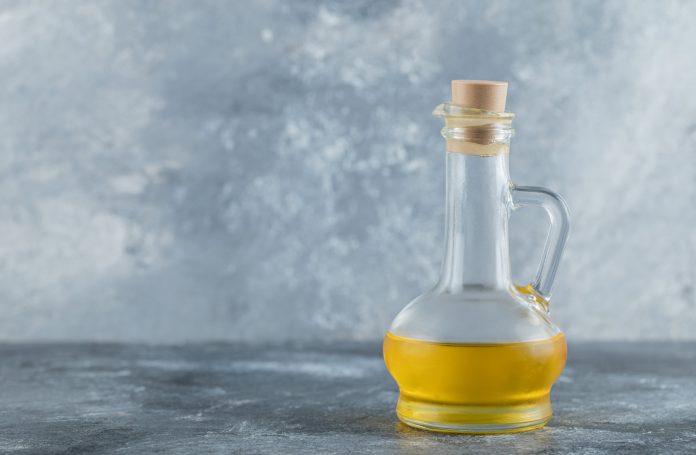Mustard oil brings something special to the table, and it’s not just about that striking golden color.
Called ‘Sarson ka Tel’ in India, it’s cherished for its bold aroma and flavors, as well as a key ingredient that’s good for you in more ways than one. It’s a kitchen essential that carries a touch of tradition and a big promise of health, making it a household favorite all over the world.
So, let’s look into what health benefits mustard oil brings to you, and which cooking tips you should keep in mind while making some dishes with mustard oil!
Health benefits of mustard oil
Cardiovascular health
The composition of mustard oil, comprising healthy fats, makes it beneficial for the heart. Studies have shown that it can reduce the risk of heart disease by managing blood lipid levels and maintaining a good balance between LDL (bad cholesterol) and HDL (good cholesterol).
Natural antimicrobial properties
Mustard oil contains glucosinolates, which have powerful antibacterial and antifungal properties. These compounds make mustard oil a natural protector against infections, enhancing your body’s resilience against microbial attacks.
Also, its nutritional components support a strong immune system. Its balance of vitamins and fatty acids strengthens the body’s defenses, making it less susceptible to common illnesses.
Supports weight reduction
Mustard oil contains B-complex vitamins like niacin and riboflavin, which can accelerate metabolism and assist in losing weight. The oil also has diacylglycerol, potentially helping with weight loss.
Using mustard oil for your cooking
Along with its bold flavor, mustard oil is packed with nutrients that make it a healthier choice over traditional cooking oils. It is also rich in beneficial fats like monounsaturated and polyunsaturated fatty acids, including omega-3 and omega-6, and supports heart health with its low saturated fat content.
Moreover, the oil’s sharp and pungent kick along with its strong aroma adds a unique depth to dishes and is attributed to the presence of allyl isothiocyanate.
Allyl isothiocyanate makes everything from curries to stir-fries taste incredibly special. It infuses a sharp, spicy undertone to dishes, making it a preferred choice for certain recipes.
It has a way of enhancing flavors that no other oil can quite match.
How to use mustard oil in your cooking?
Cooking with mustard oil
To harness the vibrant flavors of mustard oil in your cooking, start by using it in high-heat cooking methods.
Mustard oil boasts a high smoke point of approximately 480°F (250°C), ranking it alongside other cooking fats like butter. This characteristic makes it a popular choice for high-temperature cooking techniques such as frying, roasting, baking, and grilling, particularly in regions like India, Pakistan, and Bangladesh.
The high smoke point ensures that it retains its nutritional profile even when heated. It can transform a simple dish into something spectacular, bringing its pungent aroma and fiery essence to the forefront, especially in dishes featuring methi leaf, which complements its robust nature.
Additionally, mustard oil is predominantly composed of monounsaturated fats, which are less prone to degradation from heat compared to polyunsaturated fatty acids.
Adding it in pickles
Edible oils, especially mustard oil, are excellent for making pickles with their unique mix of flavor and preservation. The sharp pungency of this oil gives pickles a distinctive taste that enhances their appeal.
Also, mustard oil acts as a natural preservative. Its high erucic acid content helps prevent microbial growth, thereby prolonging the shelf life of pickles.
All things considered, mustard oil with its numerous health benefits and versatile uses, stands out as a must-have in every health-conscious kitchen. At tezmart, our selection of mustard oils is curated to offer the best in flavor and health benefits.
So, if you’re cooking a hearty traditional meal, our range ensures you get the finest quality mustard oil, packed with all its traditional goodness and health-enhancing properties.
References:
- Healthline. (August 16, 2017). Carrier Oil: Types, Benefits, and Uses. Retrieved April 16, 2024, from https://www.healthline.com/health/carrier-oil
2. Healthline. (September 20, 2023). How to Get Rid of a Cold Fast: 16 Remedies and Tips. Retrieved April 16, 2024, from https://www.healthline.com/health/cold-flu/how-to-get-rid-of-a-cold-fast
3. Healthline. (October 12, 2023). Anti-Inflammatory Diet 101: How to Reduce Inflammation Naturally. Retrieved April 16, 2024, from https://www.healthline.com/nutrition/anti-inflammatory-diet-101
4. Siri-Tarino PW, Sun Q, Hu FB, Krauss RM. Saturated fat, carbohydrate, and cardiovascular disease. Am J Clin Nutr. 2010 Mar;91(3):502-9. doi: 10.3945/ajcn.2008.26285. Epub 2010 Jan 20. PMID: 20089734; PMCID: PMC2824150.
5. Reyes-Jurado F, López-Malo A, Palou E. Antimicrobial Activity of Individual and Combined Essential Oils against Foodborne Pathogenic Bacteria. J Food Prot. 2016 Feb;79(2):309-15. doi: 10.4315/0362-028X.JFP-15-392. PMID: 26818994.

